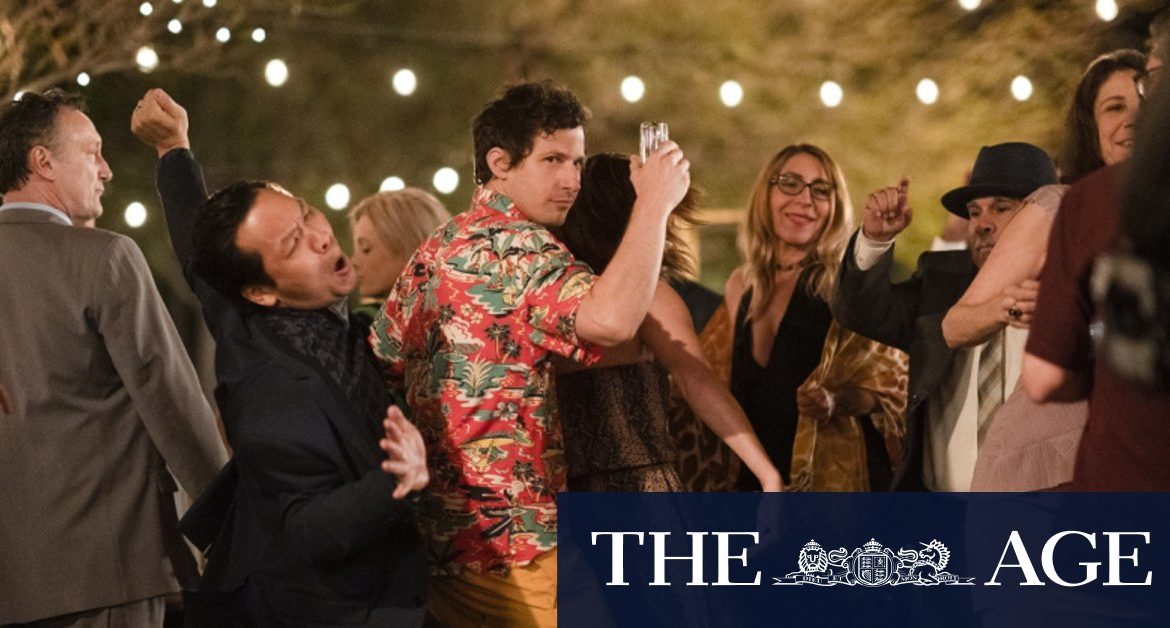Palm Springs is fun, but different, although I hesitate to call it original. It’s a time-loop comedy, borrowing so much from the premise of Groundhog Day that Harold Ramis ought to get a royalty. A young man called Nyles (Andy Samberg) wakes up at a wedding in a resort somewhere near Palm Springs. He tries to have sex with his vapid girlfriend Misty (Meredith Hagner), who’s frustrated with him droning on about life being meaningless. He behaves badly at the wedding, chugging beer until he meets the bride’s sister, Sarah (Cristin Milioti). They wander into the desert, where a man called Roy (J K Simmons) tries to kill Nyles with a bow and arrow. Sarah follows them into a glowing cave mouth – against all sense – and from then on, it’s always November 9 for her, too.
Loading
Samberg is perfectly cast as the young nihilist who has lost track of how many times he has lived this day. In Groundhog Day, Bill Murray was already a misanthrope when he entered the time loop. His progression, once he realised his predicament, was towards enlightenment and acceptance, even a state of grace. In Palm Springs, Nyles has gone the other way, deep into existential crisis, where nothing matters (so you may as well drink beer all day). Meeting Sarah makes him wonder if there is something worth living for. And he feels guilty that he did not stop her entering the cave.
Samberg doesn’t have Bill Murray’s dark side, so the comedy here has a different hue. Nyles is sunnier, younger, more philosophical, perhaps a little kinder. The scriptwriter, Andy Siara, wants to see if he can shake these two strangers out of their generational entropy. It’s an interesting way to energise a romantic comedy – the oldest and tiredest genre of them all. Cristin Milioti has good comic energy and an unpredictable screen presence. She is no less horrified to be reliving each day, but more determined to do something about it.
Existential comedy is hard to sustain: you can’t just keep asking the same question – why am I here? – for 90 minutes. The time loop forces the characters into deeper questions: is there any point falling in love if time resets every morning? Can you still have hope? How do you live your day when death is no longer a threat?
Of course, the film never resolves any of these big questions, but the fact that they are even there, albeit buried in the script, is surprising. Harold Ramis’s brilliant idea was to see whether a life was perfectable, if given the gift of repetition. It was properly Dickensian in scope, like Scrooge being visited by ghosts. Palm Springs treats the idea as a jazz player might treat the chord changes of a standard – somewhere to poke around in and find new expression. I think Ramis might have been flattered.







